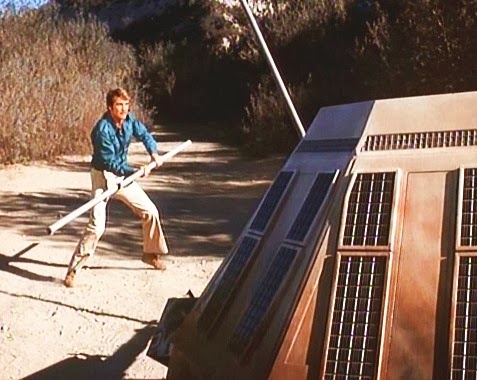In a Financial Times interview conducted by Richard Waters, Larry Page discusses the Bell Labs ambitions of Google, the search giant that aims to remake itself in radically different ways. He also concurs with the current conventional wisdom that says consumer prices are about to markedly shrink and that will make up for technological unemployment. An excerpt:
Some of Google’s own big bets are in areas that he describes as being at the “fringes” – things that seem open to a technological solution but which, for some reason, have not received concerted attention. As examples, he picks self-driving cars and the diseases that afflict older people – the latter a field that his wife worked in at a lab at Stanford University. “It wasn’t a high-status thing,” he says. Through a new biotech arm called Calico, Google is now planning to plough hundreds of millions of dollars of its own into the area.
“We do benefit from the fact that once we say we’re going to do it, people believe we can do it, because we have the resources,” he says. “Google helps in that way: there aren’t many funding mechanisms like that.”
But compared with its heady early days, when every brash initiative was welcomed by an adoring public with the indulgence of a parent celebrating a child’s finger paintings, the onrush of technological change has started to stir up fear.
“I think people see the disruption but they don’t really see the positive,” says Page. “They don’t see it as a life-changing kind of thing . . . I think the problem has been people don’t feel they are participating in it.”
A perennial optimist when it comes to technology, he argues that all that will change. Rapid improvements in artificial intelligence, for instance, will make computers and robots adept at most jobs. Given the chance to give up work, nine out of 10 people “wouldn’t want to be doing what they’re doing today.”
What of people who might regret losing their work? Once jobs have been rendered obsolete by technology, there is no point wasting time hankering after them, says Page. “The idea that everyone should slavishly work so they do something inefficiently so they keep their job – that just doesn’t make any sense to me. That can’t be the right answer.”
He sees another boon in the effect that technology will have on the prices of many everyday goods and services. A massive deflation is coming: “Even if there’s going to be a disruption on people’s jobs, in the short term that’s likely to be made up by the decreasing cost of things we need, which I think is really important and not being talked about.”
New technologies will make businesses not 10 per cent, but 10 times more efficient, he says. Provided that flows through into lower prices: “I think the things you want to live a comfortable life could get much, much, much cheaper.”
Collapsing house prices could be another part of this equation. Even more than technology, he puts this down to policy changes needed to make land more readily available for construction. Rather than exceeding $1m, there’s no reason why the median home in Palo Alto, in the heart of Silicon Valley, shouldn’t cost $50,000, he says.•
Tags: Larry Page, Richard Waters

